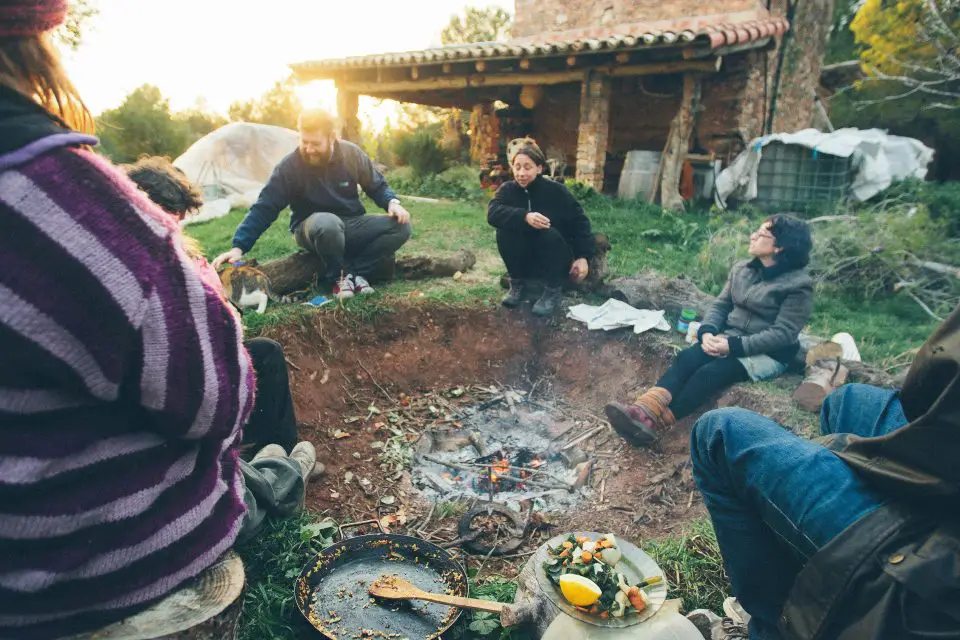
There are several benefits to living a self-sustaining life, and fresh, homegrown foods are one of them. Get it right and things like excessive waste or running short on certain foods will become a thing of the past. With mindful planning and forward-thinking strategies, you’ll achieve true food security, and sustain your family with wholesome foods all year round.
The Importance of Food Security
The numbers are in and they don’t look good at all. The most recent statistics from the USDA place children living with food insecurity in the U.S. at nearly 18%. This stark reality reinforces the significance of creating your own access to food. What’s more, your planning should ultimately lead toward lasting security. Here are a few DIY tips that can be helpful.
Diversify Food Sources
It’s one thing to have a cute little chicken coop in your backyard so you can collect eggs for breakfast every Sunday, and another entirely to make provision so your family never goes hungry. Aim to have more than one source of food on which to rely:
- Gardening: Research fruits and vegetables best suited to your climate and grow them. This ensures a seasonal harvest of vital nutrients.
- Poultry and Livestock: Keeping chickens, cows, and goats will supply your protein and dairy needs.
- Foraging: Identify wild, edible plants growing in the area. Foods like mushrooms and berries are great finds.
- Fishing and Hunting: This offers an alternate source of protein and adds variety to your diet.
The Berkeley Food Institute refers to it as a whole system approach to agriculture. It allows for a more nutritious diet, and a better chance at long-term success.
Preserve Your Food
Now that you have a system going to produce your food, your next step should be figuring out how to preserve it. In this way, you reduce waste and ensure consistent food supply weeks and months down the line.
- Canning: Fruits, vegetables, and even meats can be canned safely. Shelf life is extended to months and sometimes years.
- Freezing: This is the simplest way to store food for long periods, but requires a reliable supply of electricity to keep your freezer running.
- Fermenting: Also known as pickling, this method does more than just preserve food—it enhances its nutritional value as well.
- Dehydrating: Perfect for meats and fruits, using this method will add variety to your food options with delicious snacks.
Store Nutrient-Rich Foods
Having an abundance of the right types of calorie-rich foods will make all the difference to your family:
- Nuts and seeds
- Dried fruits
- Legumes, like beans and lentils
- Whole grains, like oats
According to the World Health Organization (WHO), proper nutrition in the first two years of a child’s life is especially important. It lowers mortality and the risk of developing chronic diseases.
Food Safety and Rural Living
It goes without saying that contaminated foods pose serious risks to your family’s health, especially for babies and young children. Recent cases, such as the Similac lawsuit, bring this fact into sharper focus.
The cow’s milk-based formula has been linked to necrotizing enterocolitis (NEC) in preterm infants. It’s a condition that causes death of the intestinal tissue, along with further debilitating health complications. According to TorHoerman Law, the impact of unsafe products and the litigation that ensues goes far beyond adverse health problems. Families experience acute emotional and financial distress as well, often suffering staggering losses in both respects.
While store-bought baby formula may not be on your list of pantry items, cases like this one highlight just how important it is that food—even when homegrown—be free from harmful substances.
How to Prepare for the Unexpected
The unpredictability of leading a self-sustaining lifestyle is part of the charm. But it’s also the very thing that can endanger lives. That’s why it’s important to always plan for every eventuality.
- Have a Backup: Stockpiling an emergency supply of food is your first step to disaster preparedness. Keep at least 1-6 months’ worth of non-perishables in varying food groups in storage.
- Create a Seed Bank: Think of it like a family album, but for all your favorite crops. This ensures future harvests no matter what happens to your current growth.
- Invest in Solar Energy: Power outages are common when living outside the city. Solar panels will help keep the lights on (and food preserved) during these times.
- Make Friends: Form networks with your neighbors and local farmers to exchange food and other resources when needed.
There’s nothing quite like making a life for yourself far from the hustle and noise of urban spaces. But along with peace and quiet comes the responsibility to afford your family peace of mind. Self-sustained living is about creating resilience that lasts, and that starts with good planning and creative strategies. Securing a safe, continuous food supply is your first step to thriving in the great outdoors.












